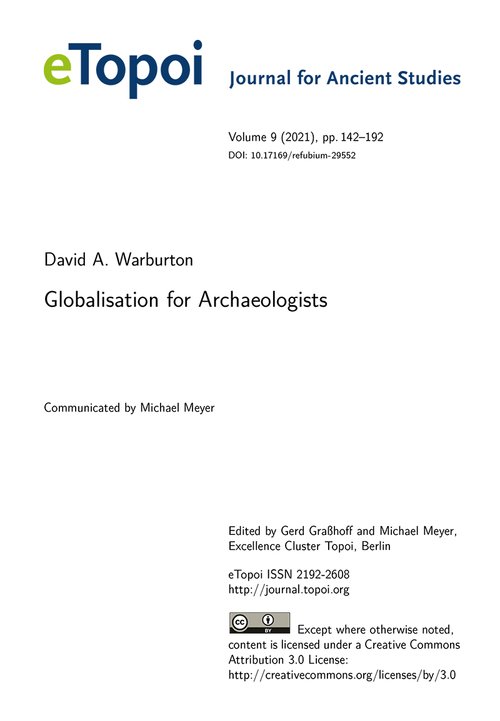Globalisation for Archaeologists
Accepting Globalisation means accepting diffusion, but globalisation has much to offer archaeologists, i.a. a monopoly on the sources of information for the early history and nature of globalisation. Beyond that, the elementary units of globalisation are not the states and boundaries we cannot find, but rather the cultures and civilisations we do and thus, there is less of a methodological confrontation with theory. Furthermore, globalisation offers a different approach to questions of economics which vex archaeological research. Approaching history from this vantage point allows a clearer means of structuring our understanding of history by combining cognitive, political, economic, social and cultural elements relating to identity and exchange to organise spatial and temporal groupings.
Globalisierung anzunehmen bedeutet Diffusion anzuerkennen, aber Globalisierung bietet dem Archäologen vieles, u.a. ein Monopol für die Erfassung der frühen Geschichte und Natur der Globalisierung. Wichtig ist, dass die Elementareinheiten der Globalisierung nicht die Staaten und Grenzen sind, die wir nicht finden, sondern die Kulturen und Zivilisationen die wir gut erkennen können; daraus ergibt sich weniger Streit mit sozialer Theoriebildung. Weiterhin eröffnet die Globalisierung eine Möglichkeit der Wirtschaft näher zu kommen als es bisher der Fall war. Geschichte auf diese Weise aufzufassen bedeutet die Vereinheitlichung von kognitiven, politischen, wirtschaftlichen, sozialen und kulturellen Elementen, die mit Identität und Austausch verbunden sind, um letztere räumlich und zeitlich einzugrenzen.

